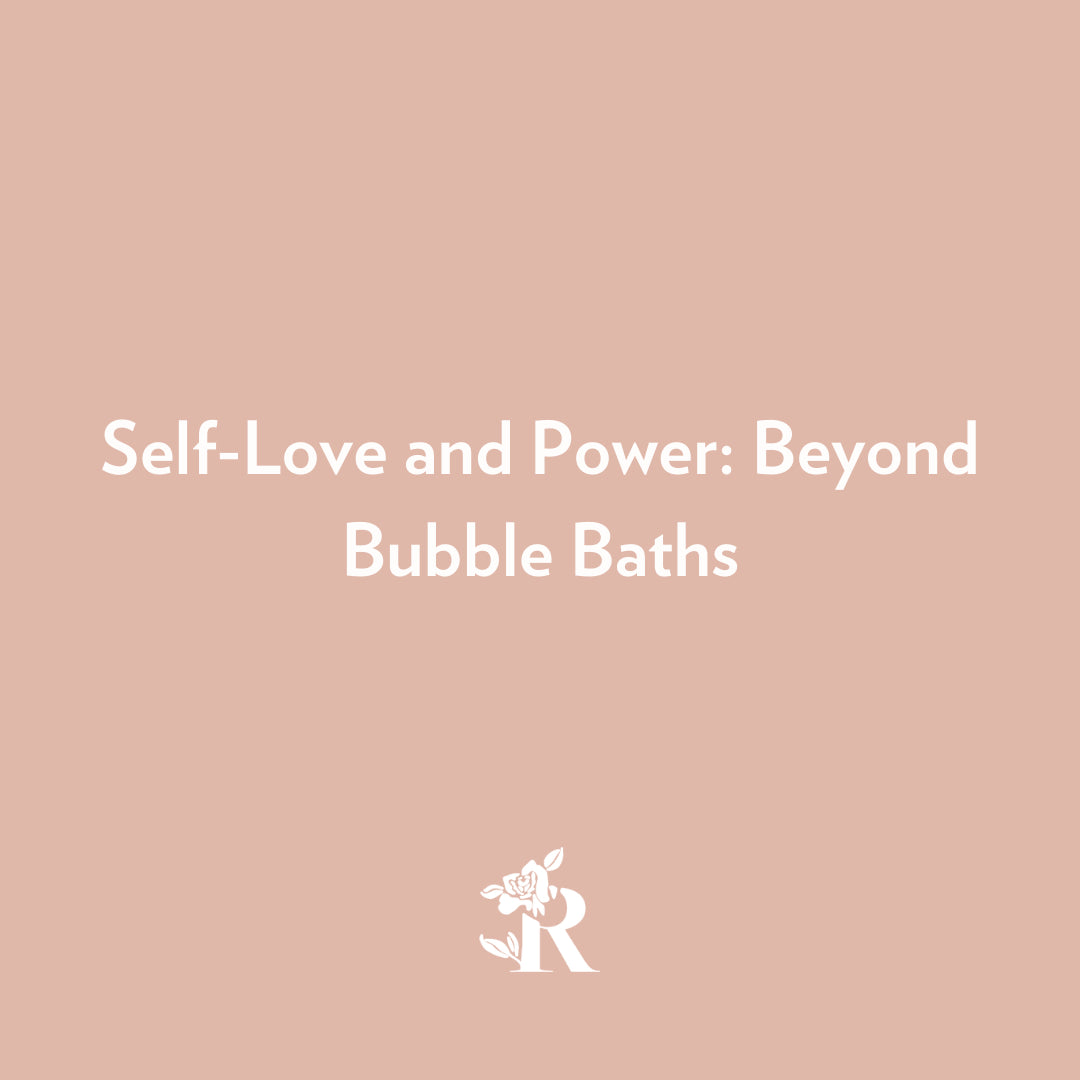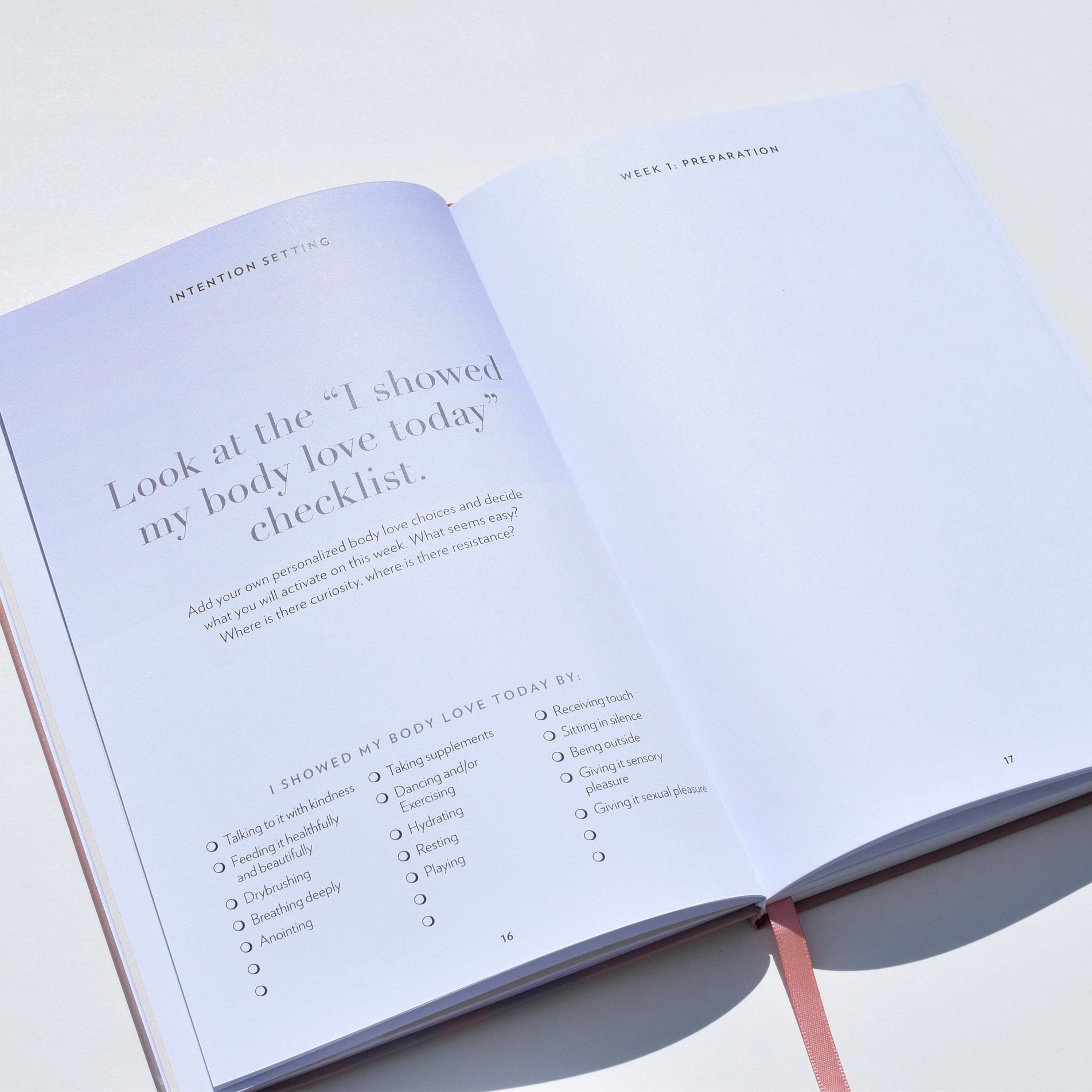Self-Love and Power: Beyond Bubble Baths
Self-love and self-care are inextricably linked to personal and political power
This week, I want to talk about self-love, how it relates to power and happiness, and how those things can be cultivated.
Self-love isn’t an individualistic ego thing. It begins with recognizing that you are a valuable, valid, holy part of nature, and part of creation.You are nature, no less than a tree or a blossom. With this world view, you see yourself as worthy of being cared for, cherished and advocated for. You begin to tune into what that care looks like for your own personal chemistry and mental framework. In order to do this, you have to know your own capacities, preferences and desires, and have a sense of your boundaries.
Creating boundaries doesn’t mean you’re making a tight little circle around yourself. You might have the personal capacity to have boundaries that are immense and wide and all-encompassing! Nonetheless, you know what they are—and when you approach them, you’re able to take the steps needed to take care of yourself. When you are self-loving, you know that that is a valid thing to do.
Self-care isn’t about selfishness. When you know yourself, you also know when you have greater limits and capacities than other people, and when you can go that extra mile when others might flag. Even if it looks like, in the short term, you’re taking time away from other people, or taking time away from your work. If you treat yourself this way, you will exponentially increase the energy you have to give to the rest of the world, and to the people you love. I guarantee that if you do this, you will have more energy.
Self-love and self-care are inextricably tied to personal and political power. Power is not only the definition we get from physics, which is the capacity for work, or the ability to get things done. It’s also a reference toward the method of getting things done. How to swing your resources toward accomplishing a particular goal. It can be through persuasion: by getting people interested in changing their habits, or their minds. It can be done through money, or by votes; by electing people. In any case, if you wish to move things in a particular direction, you need to be standing on a strong, stable foundation of your own, with real clarity about what you want to accomplish. If you’re always leaning out into what other people need and moving away from your own stable base, it’s very difficult to have any leverage in outside action.
Self-love helps you stay in your own core, and act from a place of strength and stability. That’s one piece of the “power” component.
Another is related to power on behalf of a class that you belong to. I was influenced by reading Sonia Renee Taylor’s book Radical Self-Love. If you internalize what society believes about a class of people, she says, you might just devalue your own worth to such a great a degree that you won’t even stand up for your own value. She gives examples such as being black in America, or queer, or a woman, even. So many women have so deeply internalized their second-class citizen status to men, that they actually vote for men who are “pussy-grabbers,” and abusers. They’ve so deeply internalized their own lack of self-worth that they aren’t empowered to advocate for their own class.
But once you thoroughly discover that you’re a magnificent creation of the universe, perfectly deserving of equal treatment and love, you can act from that place in both the social and political spheres. You then might question and activate on issues like maternal health or domestic violence or equal pay. No one would dissuade you from the fact that you deserve equal health care and the right to work without being harassed. People often think of self-love as just taking care of yourself, for your own good—but it has this much bigger influence.
Historically and traditionally, women’s bodies have been used as a transactional tool to please other people, or for their biological functions. For many women, their sexuality, desirability, attractiveness, and functionality as a child-bearer all lead to a focus on how others perceive and value you.
The opposite of this is, “I value my own body for the muscles and the joy and the dancing and the work that it does, and for the fact that it’s alive. I value it for me. Therefore, it is worthy of care for me—not because I’m trying to appear a certain way, or be something for other people.” And that is one of the deep themes in our whole product line.
Here, then, is a set of Eight Resolutions:
1 — I notice and dismantle any internalized rejection of me—any marginalization of me because of my female body.
2 — I accept and love all of me, especially the parts I usually reject. I am valuable just as I am.
3 — I will spend part of my day adoring and addressing the needs of my own body and spirit.
4 — I will learn, know, and pay exquisite attention to my own edges. When I feel anxiety, when I feel anger coming on, when I feel fatigue coming on, I will stop, and not go over the edge (the ultimate in self-care).
5 — The opposite is also true: I will pay exquisite attention to my moments of lift-off. I will embrace the moments when I’m elevated, and feeling clear and good, and go as far as I can in that direction. If the opportunity presents itself, I’ll fly! I’ll allow life to lift me.
6 — I will not be afraid or ashamed to give myself pleasure when I feel in need of it.
7 — I will avoid giving my energy to people who are taking from me, draining me, without really feeding them or giving them sustenance.
8 — I will give people my “No” with kindness, and without fear. This is a real challenge: Can you keep your heart open and stay uncontracted and stay connected to another person while you give them your no?
That eighth resolution is a very important example of how self-love connects with power. Many women have this sense of having a “No” and writing it on a piece of paper and curling it up into a ball and ducking behind a wall and throwing the ball of paper at the other person and expecting blowback—as if it was a grenade. But the opposite can also be true. You just tell the person what’s going on. You say, “I can’t help you. I love you, but I can’t help you, I’m already over my skis, and I’ve got other priorities. Want a cup of tea?”
And if someone does belittle you, badger you, bully you, or give you blowback in response to your self-knowing decline of their request, they are probably one of those energy-sucking people that you might want to phase out of your life.
As a founder, I want to point out something that you have probably already noticed: the look and feel of our Rosebud Woman products is very Yin. It’s very soft: pink and floral and plants and frosted glass and all of that stuff. And our book, The Invitation to Self Care, is also soft. But underlying it all is a very strong, very Yang message: Stand in your own power, and take care of your own being.
Because from that you can do great things in the world. Because while we’re working on internalizing a new reverence for ourselves, we’re also working on solving systemic problems that stem from lack of respect for the feminine: Like women’s health, maternal support, and domestic violence. So know that the work you’re doing to take care of your own being, and the new story you’re writing, is rewriting the story for all of us. And that’s true power.

























